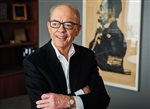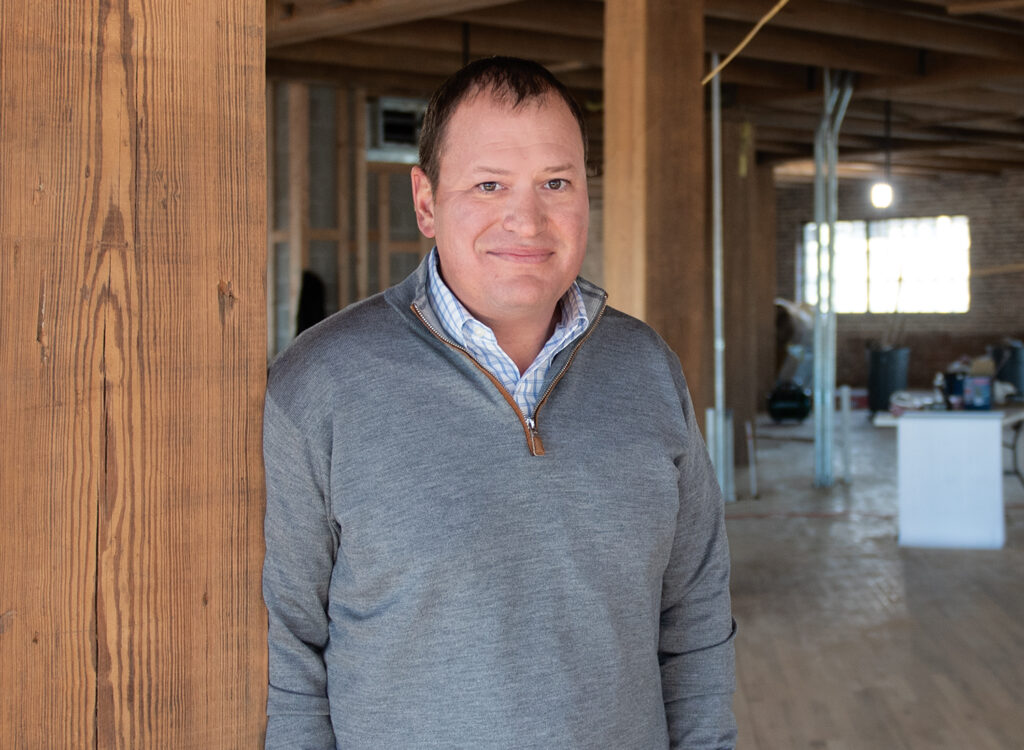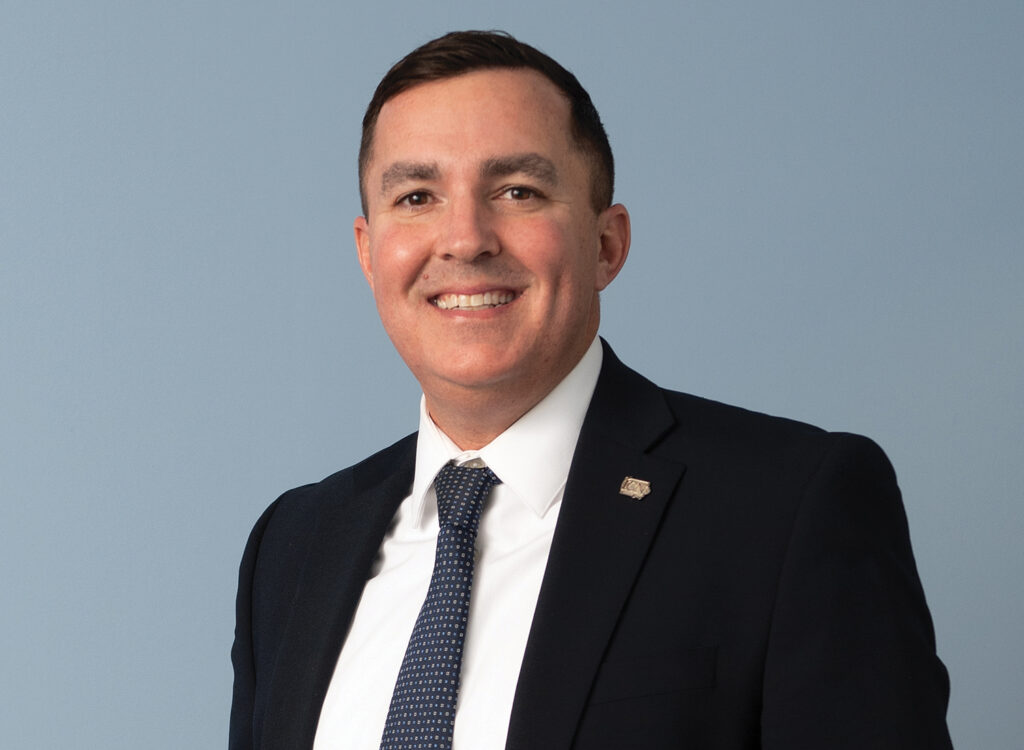Leading with intensity
Zumbach retires after four decades of moving Des Moines forward

EMILY BARSKE Dec 30, 2020 | 10:57 pm
15 min read time
3,468 wordsBusiness Record Insider, Economic Development, Government Policy and LawThe list of bullet points for community service on Steve Zumbach’s resume outnumber the list of professional accolades he’s received – and that’s saying something, considering he’s won more than 20 major legal industry awards since 1977. That’s the year he joined the Belin McCormick Law Firm, where he worked until retiring at the end of December.
Those bullet points practically speak for themselves.
In his more than four decades with the firm, he specialized in mergers and acquisitions, taxation, nonprofits, trusts and estates, in particular focused on family businesses. He’s worked with clients like the Krause family (owners of Krause Group, parent company to Kum & Go), the Sukup family (of Sukup Manufacturing), Stine Seed and Vermeer Manufacturing, among many others.
He played a sizable role in forming several Greater Des Moines organizations that are prominent today, like the Greater Des Moines Partnership.
He’s made significant contributions to Iowa State University, his alma mater, and served on every capital campaign since 1977 including being the honorary chair for the current campaign with a goal of raising $1.5 billion.
But those bullets are not the full story. Far from it.
If you want the full story of how Zumbach led the career and community life that he has, you have to go back to the family farm in Delaware County.
Growing up on the farm
Zumbach will tell you farming is a hard way of life.
“Particularly in farming, rarely do you have a year where everything goes right – there’s weather, prices, international trade agreements. Your world can change on any number of things and your livestock can get disease, and you lose money,” said Zumbach, who was the fourth generation of his family to live in the U.S. after immigrating from Europe to escape tough economic times. “We milked cows, we raised hogs, we grew corn and soybeans. That was hard work. We worked seven days a week.”
It’s probably no surprise after such an upbringing that you could find Zumbach in his law office on most weekends. Making sacrifices in order to get work done or help others was something he saw exemplified over and over as a kid on their farm not too far from Manchester.
Like the times that his grandpa, who had a bad rotator cuff on one arm, would do chores with his one good arm so Zumbach could study for a test the next day. Or the time he went to the bank with his dad as a young boy and heard the banker say they weren’t doing well financially and they’d need more hogs and cows to make ends meet, which is exactly what they did even if it required working until 1 a.m. or later on school nights.
The nature of working a family farm not only taught him about hard work, but it made him passionate about family business as he found areas of expertise in law. Many clients he’s worked with have had family operations and many have been involved with agriculture.
In fact, it was mentors within agriculture who helped him decide on a path to law school. A vocational agriculture teacher named Garland Ashbacher had taken an interest in Zumbach at age 10. Other advisers had told him to take Latin to prepare for law school. Ashbacher had other plans in mind and told him he needed to be heavily involved in 4-H and take certain courses if he wanted to be a successful lawyer.
“He said … ‘If you’re going to be a great lawyer, you’re going to have to be a great public speaker. You’re going to need leadership skills because you’re going to be interacting with people and dealing with difficult problems and personal circumstances. What I will do, I will help you design your own curriculum that you’ll study,’” Zumbach recalled. “[He said], ‘I will give you the treatises that professor Dr. [Neil] Harl at Iowa State University writes, and it’s about agricultural law so you can be learning. I will redesign the curriculum for you for the next four years. You can study Dr. Harl, and before you go to college, I will introduce you to him.’”
True to his word, he did, and Harl, who is widely known as the premier agriculture lawyer in the country and also now retired, became Zumbach’s next great mentor. “I didn’t get here by myself,” Zumbach said. “I got here because of mentors, people that helped advise me and took the time with a young person to show me the way. I would never have found it on my own without mentors.”
The value of education
Two weeks before starting school at Iowa State, he got to meet the iconic Harl. Harl sat him down and asked what he wanted to do with his life. Zumbach answered, telling him about ideas to expand the family farm operations, or maybe become secretary of agriculture, or maybe be the governor of Iowa or maybe run a large company. And after telling him those major aspirations, Harl simply replied: “Steven, you’re not thinking big enough.”
Harl told him to study economics and accounting, get his CPA, go to law school, get a doctorate in economics. He told Zumbach, “There’s only one person that’s done it. I’ve done it, and you could be No. 2.”
Zumbach replied: “With all due respect, that’ll take 15 years.”
With help from Harl, they whittled the plan down to 10 years. And that’s what Zumbach did – earning his undergraduate degree at Iowa State in 1973, law degree from Iowa in 1975 and doctorate from Iowa State in 1980.
His time at Iowa State included some of his most transformative years.
Education shaped his views on the world – and drew him to give back.
“I felt a responsibility for helping Iowa State grow through private sector fundraising,” Zumbach said. “That university defined me and gave me a chance to think about my life, my world in a different way. … Politically my family was very conservative. But as a result of a good education, I began to think about problems and political issues in government in a different way. … I believe that people should be rewarded for their hard work and based on what they do and produce. …
“Our market economy works, but it’s not perfect and there needs to be adjustments made. And that was indelibly printed on my mind and I understood it by the time I graduated. So when the free market doesn’t work, that’s where government plays a role. Free markets won’t produce infrastructure, roads and bridges. They won’t produce schools or educate the masses.
“And some people face hardships in life. So how do you take care of those people?”
Those values learned at Iowa State have held true through his career and have prompted him to give back as an alumnus.
“Steve has created an extraordinary legacy at Iowa State University, beginning when he was an undergraduate student serving as student body president and then as a member of the Iowa Board of Regents,” Iowa State President Wendy Wintersteen said. “Now he, along with his wife, Kathy, are two of Iowa State University’s most dedicated supporters and distinguished volunteer leaders. Steve has served on nearly every Iowa State presidential search committee since 1986, including my own in 2017, and every capital fundraising campaign for the past four decades. …
“Steve is a wonderful champion of Iowa State, helping advance our university in numerous ways that are true to our land-grant ideals of putting science, technology, innovation and human creativity to work.”
He was student body president during the Vietnam War and witnessed a generation wanting to solve problems. He was also previously a national officer for Future Farmers of America. His assignment was to be a featured speaker at FFA state conventions. He was at Ohio State University the week that the Kent State massacre occurred. After the convention in Columbus, Ohio, he traveled to Kent State and talked with students.
“That helped me understand there are consequences for insightful words and other important political issues,” Zumbach said. “We need to determine how to discuss these issues, not as Republicans or Democrats, but in a way to solve problems.”
With widespread unrest, students across the country demanded to be included in oversight at public institutions. When a Board of Regents seat opened in March 1973, Gov. Robert Ray – who had met Zumbach through FFA – appointed Zumbach as the first regent in Iowa’s history who was a student. He served until 1977.
Three amigos
Suku Radia, who immigrated from Uganda, met Zumbach his third day on campus at Iowa State. At the time, Radia said, he could barely walk and chew gum at the same time as he was getting acclimated to the United States. He immediately formed an impression of Zumbach, who had long hair and a beard, as being the big man on campus. In some of the same classes, Zumbach always sat at the front of the room while Radia preferred to sit in the back.
While the two were acquaintances in college, they wouldn’t reconnect and form a deeper relationship until the ’80s when they both worked in Des Moines, sharing some of the same clients and networks, as Radia was a CPA. That relationship grew to be more than just professional as both now consider each other among the closest of friends.
They don’t exactly have the same personalities, though.
“He is very intense,” Radia said, laughing, as he described Zumbach’s serious demeanor compared with his more lighthearted approach. “He’s someone who has exceptional critical thinking skills and thinks very long term. … He’s the kind of person who thinks through things very carefully.
“If Steve and I were in the same meeting and there were certain things we’d walk away with, the next day he’d probably have 10 pages of written notes with planning – and I would still be thinking about Page 1.”
Steve Chapman is also very close friends with Zumbach and Radia. All three played influential roles in many of Greater Des Moines’ current economic development and community service organizations. Radia, who was the CEO of Bankers Trust Co., and Chapman, who was the CEO of Ruan Transportation, have both been retired for a couple of years now. As the three describe it, anytime any of them called to ask each other for help with a project, they would almost always drop everything to do it.
“He is an individual that you know when he sees something that needs to be done and that he can make a difference, he’s kind of like a pitbull. He’ll get ahold of it and he won’t let it go until it’s done,” Chapman said.
Radia jokes, though, that Zumbach sometimes underestimated what their involvement would take.
“I learned pretty early when Steve says, ‘I need your involvement; it’s not going to take up a lot of your time,’ it means it’s going to take up the rest of my life,” Radia said, laughing.
“He is an individual that you know when he sees something that needs to be done and that he can make a difference, he’s kind of like a pitbull. He’ll get ahold of it and he won’t let it go until it’s done.”
But Radia and Chapman also had their share of getting Zumbach involved in things. In 2010, Radia and Chapman wanted Zumbach to be the campaign chair for the United Way of Central Iowa’s capital campaign. Both of them had previously chaired a campaign. Zumbach, involved in many other economic development initiatives and at Iowa State, had not played a huge leadership role with human services before.
Radia had called an early morning meeting with Chapman and Zumbach to discuss it. The night before that meeting, Radia had already called Zumbach to give him his pitch about all the great things the United Way does for the community. But in typical Steve Zumbach fashion, he took time to carefully research the organization, the staff, past budgets and past capital campaigns – “he studied everything,” Chapman said – before accepting the role.
And though Zumbach had not been greatly involved with United Way before and the economy was just climbing out of a recession, under his leadership the campaign raised $24 million when it wasn’t expected to break $20 million.
“It was a lot of hard work, great leadership on the staff at the United Way … but it was leaders in our community stepping forward in hard times and finding the money to contribute,” Zumbach said. “We worked very hard that
year and thought about things in a strategic way.”
Radia also got Zumbach and Chapman involved in the Central Iowa Water Trails project, serving as co-chairs. Zumbach, having helped form the Greater Des Moines Partnership, the Cultivation Corridor, Bravo and many other institutions, had learned long ago that economic development requires creating a community with robust quality of life amenities.
In the formation of Bravo, for example, Zumbach worked to find a new way of funding the arts. Knowing that the city of Des Moines’ tax base was not enough to support all the downtown amenities that really help the entire region, he developed a strategy to ask each of the suburbs to contribute through their hotel and motel tax. “The reason we have strong culture and arts is because we’ve got a strong source of funding coming from the entire region,” he said.
Zumbach approached all community service, along with his rigorous work schedule, with intense and serious commitment to solving problems. But Radia has never stopped trying to get the softer side of Zumbach out and jokes, “I was put on this earth to make Steve more human.”
When Zumbach’s daughter, Stephanie, was getting married, he and his wife, Kathy, had asked Radia to be the master of ceremonies at the reception about nine months before the big day. Radia said he spent the next few months taking turns calling the bridesmaids and groomsmen nearly every night to get to know them.
One night a few weeks before the wedding, Zumbach and Radia were having dinner and Zumbach asked him, “How is it that you know more about Stephanie’s upcoming wedding than I do?” Radia explained that he had been calling the bridal party, having breakfast with Kathy, etc. – and he gently suggested that Zumbach get more involved. So as the wedding grew closer, that’s what he did, Radia said, and it was one of many times he says he persuaded him to be more human.
“One day somebody came to see me when I was CEO of Bankers Trust and said, ‘I would really like to find a way to have a relationship with you like you have with Steve [Zumbach]. And I said, ‘I really hate to tell you this, but that’s not possible.’ And I meant it. It’s a very unique relationship,” Radia said.
When asked about memories of leisure activities together, Steve Chapman replied with a laugh, “There were not a lot of leisure activities with Steve Zumbach.” Even when having dinner together with their spouses, the conversation often turns to community issues.
“Steve Zumbach is one of those people you meet in your life and your career, and you have so much respect for him that the time I’ve always spent with Steve – and spend to this day – is so valuable to me,” Chapman said. “I look at an individual that truly has great focus and works hard every day to succeed at the right things.
“He gave so much of himself. When I say hard worker, I’m talking about a guy who would be in his office at 5 or 6 in the morning and not be out of his office until 8 or 9 at night. … There aren’t that many people who would make that kind of sacrifice, particularly when it’s not about compensation, it’s about making a difference in the community you love.”
Forming the Greater Des Moines Partnership
Zumbach has always approached economic development as a means to help both companies and the community.
“He thinks about [economic development] holistically,” Chapman said. “He looks at the quality of the jobs that are created by investing in cultural opportunities for our area. He looks at the opportunities it brings for young people in our state. I don’t think Steve ever looked at economic development as simply financial success. I think he looked at it far beyond that to all that companies do to define a community.”
Zumbach had used this mentality when he was the chair of the Greater Des Moines Chamber of Commerce Federation in 1993. When Chapman was tasked with taking on the role in 1999, going into it with the president of the organization having resigned in 1998, he realized the organization was weak and that it had lost the vision Zumbach had been working toward. So on Dec. 31, 1998, he asked Zumbach to breakfast before he assumed the position as chair.
Chapman shared the idea of creating a regional organization because too many organizations were trying to do the exact same thing. Zumbach said, “That’s not going to be easy to do.”
Chapman replied that with the right leadership it could be done and asked Zumbach to resign from the law firm and become the president of the new organization. Zumbach looked at him like he was out of his mind, Chapman said, and asked why he thought he’d be willing to give up his position at the firm, which he had worked so hard to succeed in.
Zumbach ultimately did not resign, but the two sat there for hours, going through reams of paper to set a vision for this new organization – which became the Greater Des Moines Partnership – and targeting leaders. The organization formed in just a few months, largely because of Zumbach’s efforts in pitching the idea to those in the community, Chapman said.
‘One of the most respected attorneys in the Midwest’
Chapman, like Radia, also had many professional encounters with Zumbach. As CEO of ITA Group and then Ruan Transportation, the companies Chapman led hired Zumbach for counsel on several occasions because he was “one of the most respected attorneys in the Midwest.”
Chapman points to the breadth of his clients to show how effective he was at his job.
“There is so much competition in development companies – and of the major development companies, I think every one of them had a relationship with Steve Zumbach as their attorney,” Chapman said. “I think that says a lot.
Because a lot of times when you’re running your company and you know your competitor is using someone, you find someone else. In Steve’s case, they knew the confidentiality was a given and not something to ever worry about.
“They also knew when they needed to get something done legally, they knew Steve Zumbach could get it done.”
As a leader at the firm, Zumbach took on a key role in recruiting. He said when hiring new lawyers at Belin McCormick, he has intentionally preferred candidates who are not only academically successful and good humans, but good at solving problems. He valued people who could take an interdisciplinary approach to finding solutions and who were willing to give more than they took.
“Steve’s impact on our firm really cannot be overstated,” said Kelsey Knowles, shareholder at Belin McCormick. “Steve has been an incredible mentor to so many of us, teaching us how to really get to know our clients so we can add value to the work they do and support them in times of need. Steve always strives to do more than simply answer a legal question – he has shrewd business judgment and a good heart, both of which are valued by clients and community leaders. … We will miss Steve around the office, but he has certainly earned his retirement.”
Zumbach believes that although Belin McCormick is not the biggest law firm in Des Moines, he and others worked to build a firm full of people who would do whatever it takes to solve problems for clients.
“Our firm and our community have both benefited greatly from Steve’s vision, mentoring and passion for excellence,” said Quent Boyken, shareholder at Belin McCormick. “Steve recruited outstanding attorneys to our firm, provided them with unique legal opportunities and helped them become involved in the community.
“He never expected more from anyone than what he expected from himself. Steve did not just initiate projects that he expected others to execute; he always rolled up his sleeves and worked long hours with others to achieve positive results for our clients and our community.”









